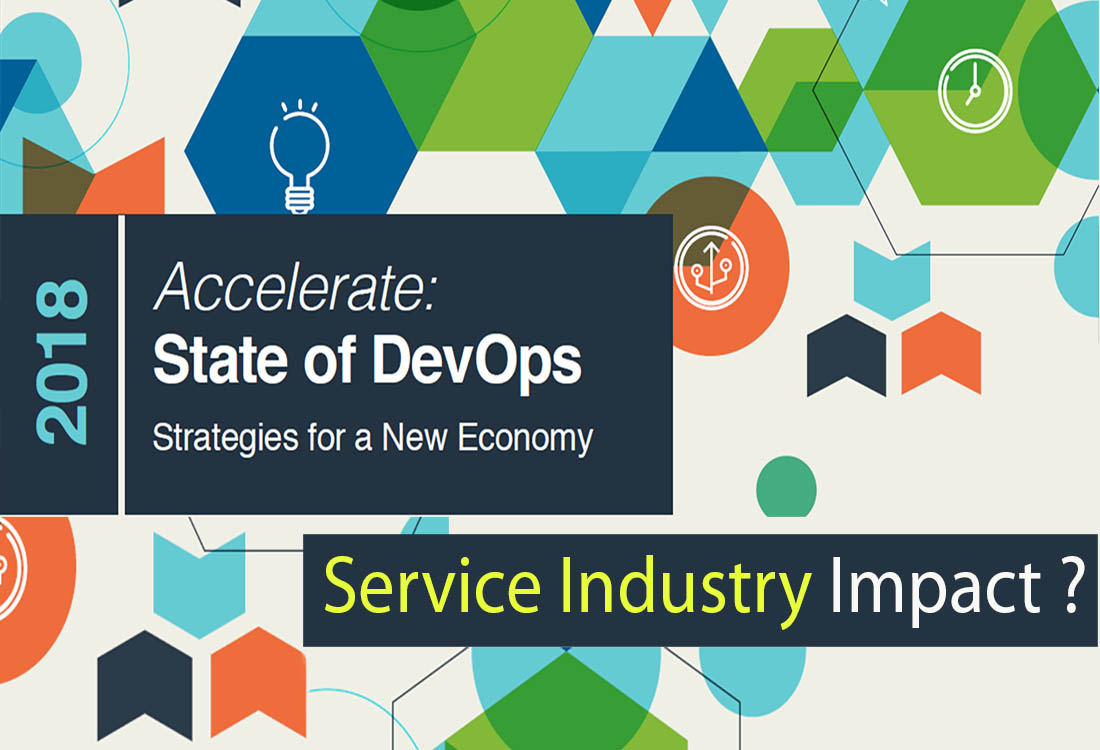State of DevOps 2018 that came out a few days back has come up with strong recommendations against outsourcing by function. This recommendation is a thunderbolt hit to the Service Industry that has specialized on the specific aspect of application development life cycle like Testing, Deployment, and Support. This blog takes a deep dive into the State of DevOps 2018 report by DORA in the context of Outsourcing and approaches Service companies can make as a strategy to sustain and stay relevant.
State of DevOps 2018 Report
DevOps Research and Assessment (DORA), has been producing the State of DevOps Report and it has been doing this for the past5 years. This year it has analyzed data submitted by 30,000 technical professionals around the world. The outcome of it is quite impressive. Organizations that are serious about its DevOps adoption need to take a look into it.
Areas it has covered in this year’s report are:
Software Delivery and Operational Performance (SDO Performance)
Cloud Computing and its impact
Open Source Vs. Commercial tools adoption
Outsourcing by Function
Vital Technical Practices for High Performance
How DevOps is helping the Regulated and non-regulated industries
What conquered my mind was the correlation with 48% of high-performing (including the 7% Elite) companies with the Outsourcing model.
Outsourcing by Function
Traditionally companies outsource some of its functions to service providers, nearshore and offshore, for cost advantage and utilize the expertise that they don’t have. For example, outsourcing the testing to offshore saved a considerable cost. Another example is the consolidation of IT Operations (Level 1 and 2). Service Providers have showcased their capabilities and captured a huge market based on their expertize.
The consequence of Outsourcing by function:
1. Additional handoffs needed from companies to external vendors
2. Potential Frictions between functional groups
3. Inability to change once the contract is signed
4. Increase in batch work
5. Substantial and critical features are forced to wait for low-value work
Interesting facts on elite organizations at its Outsourcing strategy
DORA analysis shows that low-performing organizations are 3.9 times more likely to use functional outsourcing. Elite organizations rarely outsource their functions. Most of the outsourced areas are Application Development, IT Operations, or QA and testing.
Following data shows how companies spend the time.
New approach for Organizations
If we consider that the State of DevOps reflects the facts of how organizations move to build high-performing teams, you need to revisit the outsourcing strategy. You need to evaluate your Service Providers not by its current contracts but by overall capabilities in delivering an end-to-end solution.
Impact on Service Providers
If your primary revenue is from outsourced areas like IT Operations and support, Application Development or QA, this is the time to reinvent yourself. Build a healthy relationship with customers to become Strategic partners in providing solutions. Expand your expertize beyond functional areas and construct competencies to build cross-functional teams.
Source and Reference
About the Author
Hari G, widely known for his keen analytical and product development skills, brings in 17 years of rich experience in execution of technology strategies and solutions that support company growth. As the CIO, Hari leads Agile, DevOps, Automation and analytics practices of TaUB Solutions.
Hari has extensive experience in user experience (UX/UI), Business Intelligence and Analytics, and building data-driven solutions using Agile methodologies





